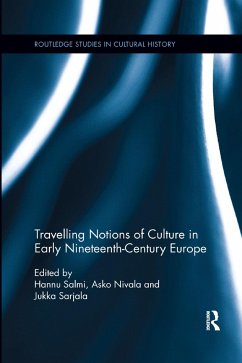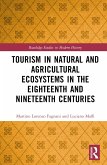The notions of culture and civilization are at the heart of European self-image. This book focuses on how space and spatiality contributed to defining the concepts of culture and civilization and, conversely, what kind of spatial ramifications "culture" and "civilization" entailed. These questions have vital importance to the understanding of this formative period of modern Europe. The chapters of this volume concentrate on the following themes: What were the sites of culture, civilization and Bildung and how were these sites employed in defining these concepts? What kind of borders did this process of definition and its inherent spatial imagination produce? What were the connecting routes between the supposed centers and peripheries? What were the strategies of envisioning, negotiating and transforming cultural territories in early nineteenth-century Europe? This book adds new perspectives on ways of approaching spatiality in history by investigating, for example: the decisive role of the French revolution, the persistent interest in classical civilization and its sites, emerging urbanism and the culture of the cities, the changing constellations between centers and peripheries and the colonial extensions, or transfigurations, of culture. It also pays attention to the spatiality of culture as a metaphor, but simultaneously emphasizes the production of space in an era of technological innovation and change.
Hinweis: Dieser Artikel kann nur an eine deutsche Lieferadresse ausgeliefert werden.
Hinweis: Dieser Artikel kann nur an eine deutsche Lieferadresse ausgeliefert werden.








